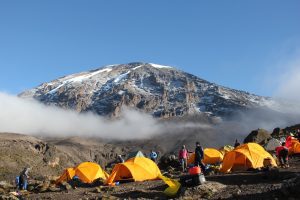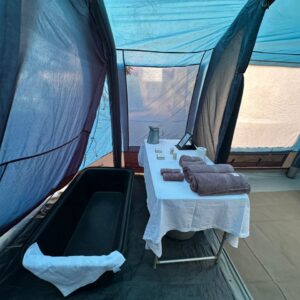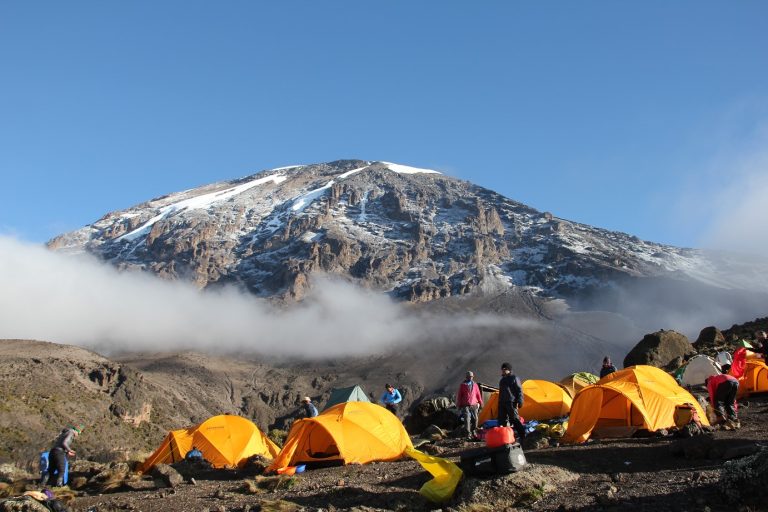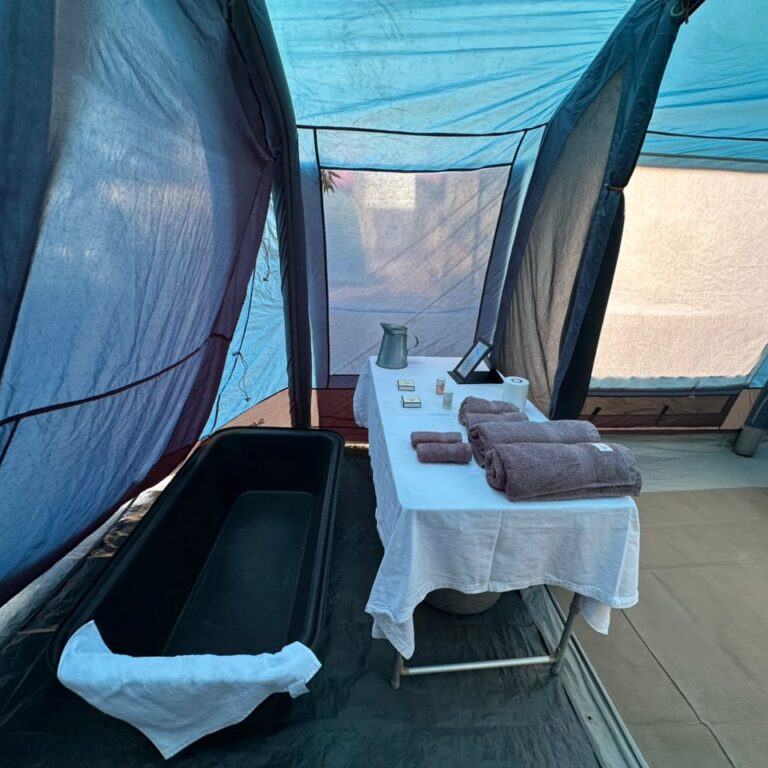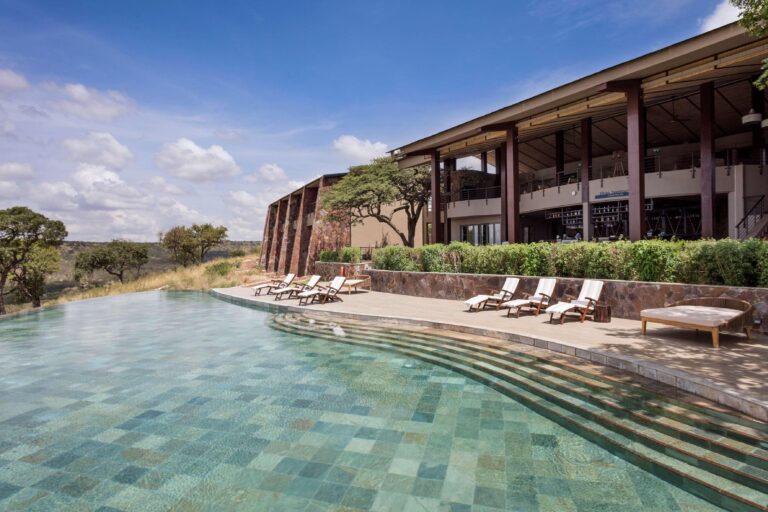To prepare for a safari in Tanzania, book your tour well in advance, arrange necessary visas and vaccinations like the Yellow Fever certificate, and purchase comprehensive travel insurance. Pack light, neutral-colored, breathable clothing for layering, including long pants and long-sleeved shirts, plus a warm sweater or jacket for chilly mornings and evenings. Essential items include a basic first-aid kit, insect repellent, high-SPF sunscreen, a hat, sunglasses, binoculars, and a good camera.
Embarking on a safari in Tanzania is one of the most thrilling adventures in Africa. From the sweeping plains of the Serengeti to the dramatic depths of the Ngorongoro Crater, Tanzania offers unforgettable wildlife encounters, rich cultural experiences, and awe-inspiring landscapes. However, a successful safari requires more than just excitement—it demands thoughtful preparation. Here’s a comprehensive guide on how to prepare for your safari in Tanzania to ensure a seamless and memorable experience.
1. Book Your Safari Tour Well in Advance
When planning your Tanzania safari, booking early is one of the most crucial steps. The country’s top national parks—Serengeti, Ngorongoro Crater, Tarangire, and Lake Manyara—are in high demand, especially during the Great Migration season (June to October). By securing your spot early, you gain access to the best lodges, guides, and park permits.
Booking in advance also gives you ample time to compare itineraries, accommodations, and pricing options among reputable local tour operators. Choose a licensed Tanzanian safari company with excellent reviews and clear communication. Remember, a well-planned safari means you’ll spend more time enjoying wildlife and less time worrying about logistics.
2. Arrange Necessary Visas and Vaccinations
To prepare for a safari in Tanzania, you must secure a valid passport (with at least six months’ validity), obtain a visa (often available on arrival, but check specific requirements), and schedule vaccinations and malaria prevention with a travel clinic 4-6 weeks before your trip. Keep copies of all essential documents, including your passport, visa confirmation, and proof of necessary vaccinations, as well as your travel insurance details. Before departure, ensure that all your travel documents and health requirements are in order.
• Visa: Most visitors can obtain a Tanzania tourist visa upon arrival or apply online via the Tanzania eVisa portal. Make sure your passport is valid for at least six months beyond your entry date and has two blank pages for stamps.
• Vaccinations: The Yellow Fever vaccine is mandatory if you’re traveling from or transiting through an endemic country. Recommended vaccinations include Hepatitis A & B, Typhoid, and Tetanus.
• Health precautions: Carry proof of your COVID-19 vaccination or recent negative test result if required. Consult your travel clinic at least six weeks before departure to ensure all immunizations are up to date.
This preparation not only ensures a smooth entry into Tanzania but also safeguards your health during your safari adventure.
3. Pack Light – Essentials Only
To pack light for a Tanzania safari, focus on neutral-colored, breathable, and layered clothing, as well as essential accessories like a hat, sunscreen, insect repellent, and a camera. Avoid bright colors and white, and bring a mix of casual wear and warmer layers for cooler mornings and evenings, such as a light jacket or sweater. Don’t forget a sturdy pair of walking shoes or hiking boots and essential personal items like medicine and a power adapter.
Packing light is key to a comfortable safari. Most safari vehicles and small charter flights have strict baggage limits (usually 15–20 kg in soft bags). Choose neutral-colored clothing such as khaki, beige, and olive to blend with the environment and avoid attracting insects.
Essential items include:
• Lightweight, breathable clothing
• A wide-brimmed hat and sunglasses
• Comfortable walking shoes or hiking boots
• A warm jacket for early morning drives
• Sunscreen and insect repellent
• Binoculars and a good camera
• Refillable water bottle
Avoid bright colors and camouflage prints (the latter are illegal for civilians in Tanzania). Remember, laundry services are available in most lodges, so you don’t need to overpack.
4. Choose the Right Season for Your Safari
Tanzania offers year-round wildlife viewing, but the best time for a safari depends on what you wish to see. If you dream of witnessing river crossings, aim for July to September. For baby animals and calving season, visit between January and March in the southern Serengeti. Choosing the right season ensures that your safari aligns with your wildlife and photography interests.
• Dry Season (June to October): Ideal for the Great Migration and predator sightings in the Serengeti. Wildlife congregates around water sources, making animals easier to spot.
• Green Season (November to May): Lush landscapes, fewer tourists, and excellent birdwatching. This period also offers lower prices and dramatic skies for photography.
5. Choose a Knowledgeable Guide
A great safari guide can transform your journey from ordinary to extraordinary. An experienced guide understands animal behavior, local culture, and ecology, and knows where to find wildlife at any time of day. When selecting your safari operator, inquire about their guide qualifications, experience, and language proficiency. The best guides not only track wildlife but also share fascinating stories about Tanzania’s landscapes and people, enriching your overall experience. At Foot Slopes Tours and Safaris, top-rated Tanzania East Africa safari companies, guides are often trained in first aid and wildlife safety, ensuring that you can relax and enjoy every moment with peace of mind.
6. Be Realistic About Your Budget
A Tanzanian safari can range from budget-friendly adventures to ultra-luxury experiences. Understanding what’s included in your safari package helps you plan realistically. Budget safaris often use shared vehicles and camping accommodations, while mid-range tours feature comfortable lodges and tented camps. Luxury safaris include private 4×4 vehicles, gourmet dining, and boutique lodges in exclusive locations.
Keep in mind that safari prices include park fees, guide services, meals, and transportation. Flights, tips, drinks, and extra activities (like hot air balloon safaris) may cost extra. Set a clear budget and discuss your expectations with your tour operator—they can help tailor an itinerary that balances comfort, adventure, and affordability.
7. Pack a Well-Stocked First-Aid Kit
To pack a first-aid kit for a Tanzanian safari, include basic supplies like bandages, antiseptic wipes, pain relievers, and antibiotic ointment. You should also pack personal medications, motion sickness and anti-diarrheal medication, and specific items like tweezers, scissors, and burn cream. While most lodges have basic medical supplies, it’s best to carry a personal first-aid kit. This ensures that you have everything you might need for minor health issues.
Your kit should include:
• Pain relievers (ibuprofen, paracetamol)
• Antihistamines and anti-diarrheal tablets
• Antiseptic wipes and bandages
• Motion sickness medication
• Prescription medicines (in original packaging)
• Rehydration salts
• Insect bite cream
If you’re on a private safari or camping in remote areas, your guide will have emergency contact protocols and first-aid knowledge, but your personal kit provides extra security.
8. Choose the Right Safari Destinations
To prepare for a safari in Tanzania, choose your destinations based on interests like the Serengeti for the Great Migration, or Ngorongoro Crater for dense wildlife viewing. You should also plan health and visa requirements, pack neutral-colored, lightweight clothing, and consider booking a safari style that fits your budget, such as camping or luxury lodges. Tanzania is blessed with some of the world’s most iconic safari destinations, each offering a unique experience.
Serengeti National Park: Home of the Great Migration and year-round predator action.
Ngorongoro Crater: A UNESCO World Heritage Site where you can see the “Big Five” in one day.
Tarangire National Park: Famous for giant baobab trees and herds of elephants.
Lake Manyara National Park: Renowned for tree-climbing lions and pink flamingos.
Nyerere (Selous) and Ruaha National Parks: Ideal for off-the-beaten-path safaris and walking tours.
When planning, consider combining northern circuit parks for a classic safari or southern parks for a more secluded experience.
9. Book Your Flights to Tanzania
Most international travelers fly into Kilimanjaro International Airport (JRO), located between Arusha and Moshi. This airport serves as the gateway to northern Tanzania’s safari circuit. Alternatively, Julius Nyerere International Airport (DAR) in Dar es Salaam connects travelers to the southern parks and Zanzibar.
Book your flights early for better fares, and ensure you have enough time for transfers, especially if connecting to a domestic flight to Serengeti, Ruaha, or Selous.
Consider arriving a day before your safari begins to rest and acclimatize. Many travelers spend their first night in Arusha, a charming town known as the safari capital of Tanzania.
10. Choose Accommodation That Enhances Your Safari Experience
To prepare for a safari in Tanzania, choose accommodation that fits your budget and travel style, pack essential gear like light, neutral-colored clothing and binoculars, and plan your itinerary based on your interests and the time of year. Options range from budget-friendly campsites to mid-range lodges and luxury tented camps, each offering a different experience and level of comfort. Where you stay can significantly influence your overall safari adventure. Tanzania offers an array of lodges, tented camps, and luxury retreats designed to immerse you in nature.
• Luxury Lodges: Provide world-class comfort, fine dining, and panoramic views. Perfect for honeymooners or those seeking exclusivity.
• Tented Camps: Combine adventure and comfort, offering you an authentic bush experience without sacrificing amenities.
• Mid-Range Lodges: Great value for money, often located near major parks.
• Budget Campsites: Ideal for adventurous travelers seeking an immersive experience close to nature.
When choosing accommodation, consider its proximity to wildlife hotspots, eco-friendly practices, and guest reviews. Staying inside or near a park allows you to start early game drives and witness sunrise over the savannah—an unforgettable highlight of your trip.
How to Prepare for a Safari in Tanzania – FAQs
To prepare for a safari in Tanzania, pack light, neutral-colored clothing suitable for layering, along with sun protection (hat, sunglasses, sunscreen) and insect repellent. Essential documents include a valid passport and a Yellow Fever vaccination certificate if arriving from an endemic country. You should also bring comfortable walking shoes and pack soft luggage, as weight limits often apply for internal flights.
Do I need a visa to visit Tanzania?
Yes, most travelers need a Tanzanian tourist visa to enter the country. You can apply online through the official Tanzania eVisa portal or obtain one upon arrival at major airports. Ensure your passport is valid for at least six months beyond your travel dates and has two blank pages for entry stamps.
What vaccinations do I need for Tanzania?
The Yellow Fever vaccine is mandatory if you’re arriving from or transiting through an endemic country. Other recommended vaccinations include Hepatitis A, Typhoid, Tetanus, and Malaria prophylaxis. Consult your doctor or travel clinic at least six weeks before your trip for personalized advice.
What should I pack for a safari?
Pack lightweight, neutral-colored clothing such as khaki, beige, or olive. Include a hat, sunglasses, sunscreen, insect repellent, and comfortable walking shoes. Bring a camera, binoculars, and a light jacket for cool mornings and evenings. Avoid bright colors and camouflage patterns.
When is the best time to go on a Tanzania safari?
The dry season (June to October) is ideal for wildlife viewing, especially during the Great Migration in the Serengeti. The green season (November to May) offers lush landscapes, fewer tourists, and excellent birdwatching opportunities.
How much does a safari in Tanzania cost?
Safari prices vary depending on the level of comfort, duration, and destinations. Budget safaris can start from around $200 per day, while luxury safaris can exceed $800 per day. Prices usually include accommodation, park fees, guide services, and meals.
Is it safe to go on a safari in Tanzania?
Yes, safaris in Tanzania are very safe when conducted with reputable tour operators. Guides are trained in wildlife safety and first aid. Always follow your guide’s instructions and avoid leaving the vehicle in unfenced areas.
Ultimate Guide to a Tanzania Safari
To plan a Tanzania safari, choose a park like the popular Northern Circuit (Serengeti, Ngorongoro) or a more remote Southern Circuit, and decide on the best time to visit based on your priorities—the dry season (June-October) offers peak wildlife viewing, while the green season (November-May) has fewer crowds. Book with a tour operator, plan your itinerary, and pack lightweight, neutral-colored clothing, essential gear like binoculars, and sun protection.
Travel tip: To prepare for a family and kids-friendly, couples/romantic honeymoon escape, or seniors safari in Tanzania, plan for the dry season (June-October) for easier wildlife viewing and comfortable weather. Book with a trusted operator that offers family-friendly accommodations with amenities like adjoining rooms, and consider flying between parks for comfort, especially for seniors. Ensure all travelers have necessary vaccinations, consult a doctor for malaria precautions, pack a basic medical kit with insect repellent and sunscreen, and choose clothing in neutral colors, avoiding bright colors and blue.
Do I need travel insurance?
Absolutely. Comprehensive travel insurance is highly recommended. It should cover medical emergencies, trip cancellations, lost luggage, and evacuation, especially if you’re visiting remote areas.
What kind of accommodation can I expect?
Tanzania offers a wide range of accommodations—from luxury lodges and tented camps to budget campsites. Many lodges are eco-friendly and located near or inside national parks for easy access to game drives.
Can I combine a safari with a beach holiday?
Yes! Many travelers end their safari with a relaxing beach escape on Zanzibar Island, famous for its white sandy beaches, turquoise waters, and rich Swahili culture. It’s the perfect way to unwind after days of adventure.
How can I make the most of my safari experience?
Be patient, stay quiet during game drives, and always listen to your guide. Bring a good camera or smartphone with a zoom lens to capture wildlife moments. Lastly, immerse yourself fully—every sunrise, roar, and golden horizon tells a story you’ll never forget.
How To Plan Your First Safari Vacation?
To plan your first safari vacation, first determine your budget, duration, and desired wildlife to help choose a region (e.g., East Africa for migrations, Southern Africa for elephants). Then, select a reputable tour operator who can help customize an itinerary and provide quotes. Finally, book flights and accommodations in advance, and prepare for your trip by getting the necessary visas and vaccinations, packing neutral-colored clothing, and bringing essentials like binoculars, a camera, and insect repellent.
Tanzania Safari Preparation – Steps for the Final Week
In the final week before a Tanzania safari, prioritize checking travel documents and health requirements, finalize packing with lightweight, neutral-colored clothing and essential gear like a camera and binoculars, and arrange for finances like local currency and tips. Also, confirm details with your tour operator and consider a “digital detox” to disconnect from technology and fully immerse yourself in the experience.
What to do in Tanzania besides safari?
Besides safaris, things to do in Tanzania other than safari, you can hike Mount Kilimanjaro or Mount Meru, go diving or snorkeling in Zanzibar, explore the cultural history of places like the Kilwa Kisiwani ruins and Bagamoyo, or visit Lake Tanganyika for activities like swimming and birdwatching. Other options include visiting Maasai villages, relaxing on Mafia Island, or exploring a short Safari in Tanzania, East Africa, to the Usambara Mountains.
First Timer’s Guide: Step-by-Step to Planning your Tanzania Safari
What You Should Know Before Booking an African Vacation?
A Guide to Your First African Safari
How to Plan & Book a Wildebeest Migration Safari
Why do we only offer private safaris
Final Thoughts
A Tanzania safari is more than a vacation—it’s a journey into the wild heart of Africa. With the right preparation, you’ll not only witness breathtaking wildlife scenes but also connect deeply with nature, local culture, and yourself. From booking early and choosing the best guide to packing wisely and selecting the right season, every detail contributes to creating a once-in-a-lifetime experience. If you’re ready to embark on your dream safari, start planning today—Tanzania’s wilderness is waiting for you.

